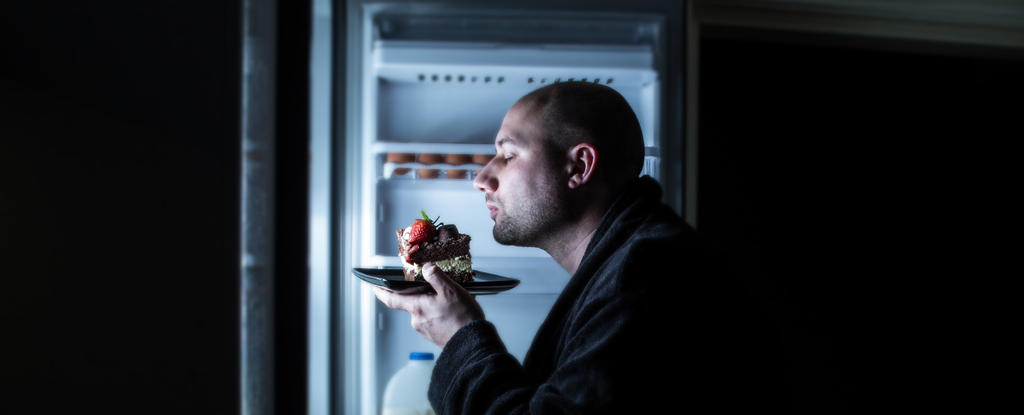A study suggests eating later in the day can directly impact our biological weight regulation in three key ways: through the number of calories that we burn; our hunger levels; and the way our bodies store fat.
With obesity now affecting hundreds of millions of people worldwide, this is a valuable insight into how the risk of becoming obese could be lowered in a relatively simple way – just by eating our meals a few hours earlier.
Earlier studies had already identified a link between the timing of meals and weight gain, but here the researchers wanted to look at that link more closely, as well as teasing out the biological reasons behind it.
“We wanted to test the mechanisms that may explain why late eating increases obesity risk,” said neuroscientist Frank Scheer, from Brigham and Women’s Hospital in Boston in 2022 when the study was published.



My point is just that if you’re expending as much energy as you consume you wouldn’t be able to pack on fat forever. That just doesn’t make sense because fat can be converted into energy, but you’re using energy up. I’m sure that the time that you eat can have an impact on 1) how much you eat, 2) whether and maybe where your body stores energy as fat, and 3) your metabolic rate which impacts how many calories you burn, and 4) maybe if you store energy as fat it’s harder to access and you wouldn’t feel as energetic or eager to burn it mentally, because as you say we’re kind of hard wired to want to be fat in case of famine. I’m not disputing any of that… But I don’t understand how eating after midnight would let you store more energy than you consume in the long term. If you actually eat 2000 calories and actually burn 2000 calories, where does the extra fat come from? I’m sure you can maybe trick your body into having a higher body fat percentage or something, but the calories and carbon atoms have to come from somewhere, no?
To be very clear, I’m not saying it’s easy to lose weight. It’s very hard for a lot of reasons: calorie counts are inaccurate, and knowing how many calories you’ve burned is extremely difficult, and all the while your body is going to fight you because it “wants” to be prepared to have no food (mentally you won’t want to do it, and my understanding is that your metabolism can slow down as well making it even harder to burn off extra calories)… But at the end of the day, if you actually intake 2000 calories and actually burn 2000 calories, I do not understand how you would be able to build up more fat. You would necessarily have breathed out all of the carbon you would need to build the extra fat molecules. Saying it’s “just calories in and calories out” is dismissive of how hard it is to lose weight and all of the factors that make it extra hard, but I do not see how you can gain fat if you actually manage to pull it off?